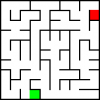Lots to consider here.
I think the first thing to realize is that design of any kind is not a fire-and-forget process. It doesn't matter what you're designing, a straight line between inspiration and tangible, universally-loved product simply does not exist. The path is twisty, branching, has many dead ends, and often loops back on itself. Those who believe or seek to prove true that there is a straight line are fools. Not only are these 'time wasters' unavoidable, they are a necessary part of the process. Design is not simply having an idea and making it real, design is taking the seed of an idea, and then exhaustively exploring all the space around it to find what works and what doesn't. You develop ways and ideas that compliment each other, and prune away those that don't, even when they might stand perfectly well on their own. Design is the process of finding form, not dictating it.
The skill to design, then, is not in simply having good ideas, but in being able to recognize ideas that enhance and compliment each other by combining to be something that is greater than the sum of its parts. Megaman isn't fun because he's a robot who moves left to right shooting things and gathering new weapons from bosses -- Megaman is fun because of how he moves through a world filled with a variety of enemies that represent different challenges, and which through their behavior, placement, timing, and environment create a novel, compound challenge on nearly every screen, and how by defeating bosses in a different order allows you, the player, to change those challenge equations.
Finally, its perfectly OK to be derivative of or to refine other games or combinations of other game mechanics, as long as you aren't duplicating them or using IP that's not yours. Romeo and Juliette is a story based on a previous tale, and which has been retold a thousand times since. Its a pattern or Genre of story that speaks well to us, just as there are genres and patterns in movies and games. But these things have to be moving, interesting, or fun to be true to what they are -- take it away and they are no longer the thing they claim to be -- a soulless story is not one worth hearing, a dull movie is not one worth viewing, a boring game is not one worth playing. In the entire space of what could be done, there are infinitely more failures to be found than successes, so if you make those core tenants subservient to your design -- rather than the other way around -- its no wonder that you will find yourself in the weeds with your boring game.
This last notion is not unlike the set of all numbers that exist -- in that set of numbers there exists an infinite amount of irrational numbers, unexpressible and forever repeating, and yet we thing of them as uncommon and not normal. In truth, its the rational numbers, those that have an end and therefore we can express, that we cling to in all we do, despite their cosmically singular rarity. Finding a new design that works is tantamount to discovering a new rational number, and its only natural that it might bare some resemblance to others we already know, or from which we might have learned from to find it.










